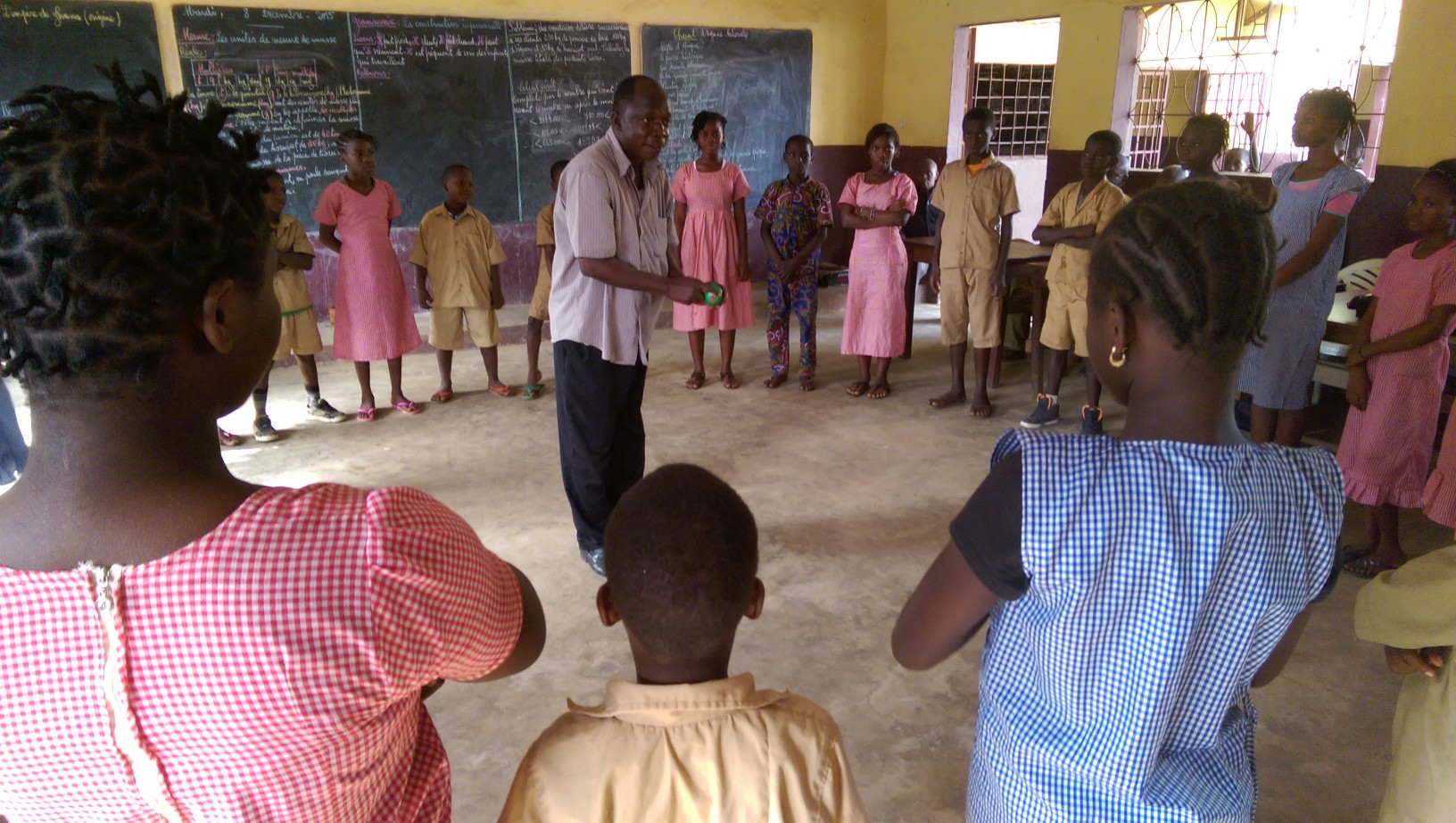For over a year I have been travelling around West Africa. I first arrived in Liberia during the height of the Ebola outbreak in 2014, where I witnessed the life-saving interventions of the national government and international partners. Since then, I have learned more about the Ebola response efforts across Liberia, Sierra Leone and Guinea, and have been humbled and inspired.
During my most recent visit to Guinea in December, I saw first-hand some of the ongoing activities the Paul G. Allen Ebola Program is supporting. These activities will hopefully help enable the country to reach its Ebola-free declaration on December 29, if no further cases are reported. (UPDATE: On Dec. 29th, the World Health Organization declared an end of Ebola transmission in Guinea.)

I joined Amref Health Africa’s social mobilization teams in Forécariah, a district in Guinea where they are working with community based organizations to conduct household and community level Ebola awareness campaigns. This type of direct community engagement has been vital in stemming the transmission of the virus across all three countries. Empowering communities to receive the tools and knowledge to educate themselves and their families about Ebola, has led to success in reducing the spread of the virus.
Recovery programs to help children whose families and lives have been affected by the Ebola outbreak are also ongoing. Across Guinea, Save the Children is working with schools to provide a Child Resiliency Program targeting children who have lost family members to Ebola. This program provides a therapeutic environment for children to express themselves and work through the stigma that many Ebola survivors and their relatives have experienced in West Africa.
In addition, Guinea is also on the road to building a more resilient health system. I traveled to Pita Prefecture with eHealth Africa, another partner of the Paul G. Allen Ebola Program, to see our program’s investments building stronger health services at the local level. Health delivery improvements in rural areas are critical, but must also be made at the national level. We’re supporting the development of systems to better monitor health services while enhancing surveillance.
The 2014 West Africa Ebola outbreak has been a complex health emergency. Through my travels over the last year, I’ve become keenly aware of many of the components which enable an effective response. First and foremost, it begins at the local level, where communities should feel empowered to lead awareness efforts and help determine best practices, given their unique understanding of their community. Secondly, targeted interventions are required to help protect the most vulnerable populations, with children quite often being the most affected group. Finally, an effective response must include a strong investment in systems and structures to prevent the situation from repeating itself.
As we near the end of this Ebola crisis, it is critical not to forget the efforts and interventions that have brought us closer to West Africa’s Ebola-free declaration.